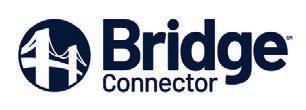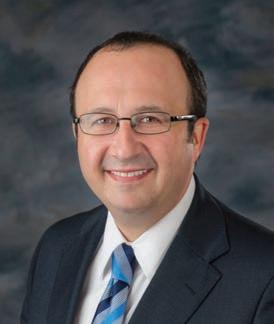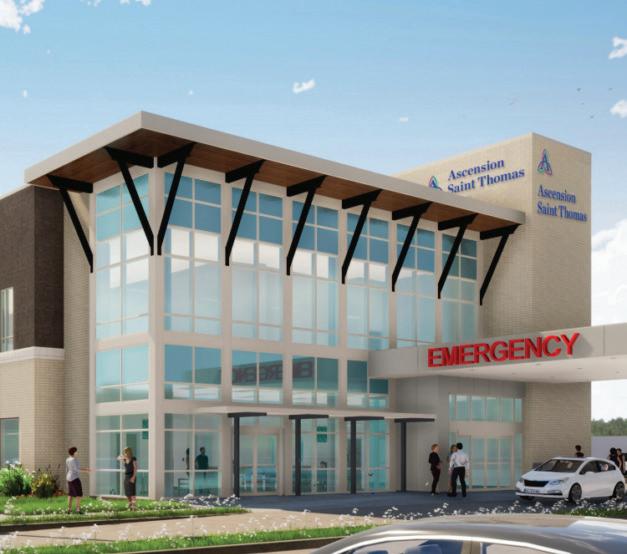
6 minute read
NOT ON THE AGENDA
The one thing that HCA and Walmart never do
A timely reminder that you can’t cut your way to prosperity
Advertisement
BY HAL ANDREWS
020 has been full of unpleasant sur2 prises, especially for hospitals and health care providers. One thing, however, is unfortunately not a surprise: the number of health systems reporting that they have “cut back” or “eliminated” (gasp) their strategy budgets.
Clichés are clichés because they are true, and this one comes to mind: “You can’t cut your way to prosperity.”
Logic suggests that failing to invest in growth strategies will be a self-ful lling prophecy. e reason that there are no case studies at Harvard Business School about companies that succeeded by eliminating their strategy executives and analytics budgets is because that has never happened.
HCA knows this, which is why they never stop investing in growth, even in challenging times. Do they delay capital expenditures? Yes, in some cases. Are they willing to reallocate investment dollars intended for one market to another market based on new information? Yes. Do they reduce spending with consultants? Sometimes, but they already spend less on consultants than most health systems. Do they ever stop thinking about growth? Never. Do they ever stop seeking better data and more data to enable them to develop better strategic plans? Never. Do they ever stop competing for the hearts and minds of physicians? Never.
HCA’s success is largely attributable to strategic decisions made in the 1980s, particularly real estate decisions. Time and time again, in Nashville and Portsmouth, New Hampshire and Austin and many other markets, HCA made extraordinary decisions about markets and sub-markets and site selection. Most health systems have some basic understanding of how it feels to compete with HCA, and we can quantify it simply: HCA is winning. How health systems believe that they can compete with HCA by cutting strategy budgets brings to mind what Sir Winston Churchill said about Russia: “ It is a riddle wrapped in a mystery inside an enigma; but perhaps there is a key.” Perhaps…
If any company is better than HCA at site selection and data-driven decision-making, then Walmart is that company. Most health systems have no understanding of what competing with Walmart will be like, but we predicted it in 2007. Most people, including a few Walmart executives, did not believe us in 2007, but last month’s announcement has a lot of people trying to get up to speed. In summary: • By the end of 2020, Walmart Health will have 13 locations in Georgia, two locations in Chicago, and one in Arkansas. In 2021, they plan to expand quickly into the Florida market targeting Jacksonville, Tampa, Orlando. With 90 percent of the American population living within 10 miles of a Walmart, their expansion will likely impact every single health system in the country. • Walmart has partnered with Clover to o er Medicare Advantage plans beginning in Georgia. • All of the services o ered have transparent pricing and they accept all major insurance products. • e United States has 3,141 counties and 4,753 Walmart locations.
Peter Drucker wrote that the purpose of strategy is to enable an organization to achieve its desired results in an unpredictable environment. Walmart’s entrance into primary care and the Medicare Advantage market will radically change the health care industry. 2021 promises to be the rst year ever, and perhaps the rst of many years to come, when health systems are confronted with the smallest number of commercially insured patients in a decade, a dominant urban competitor in the most attractive markets, and the largest company in America entering both urban and rural markets. Maybe strategy is not the place to cut…
Hal Andrews is president and CEO of Trilliant, a Nashville-based data and analytics venture focused on patient acquisition. trillianthealth.com
HAL ANDREWS, TRILLIANT
Learn more at bridgeconnector.com

Physician Group Integrates EHR to Save $385K/Year, Increase Productivity 50%

MIMIT Health, or the Midwest Institute of Minimally Invasive Therapies, is one of the fastest-growing independent multi-specialty physician groups in Illinois, with eight locations in the Chicago metro area. They offer reduced risk, reduced pain, and shorter recovery time for their patients compared to traditional surgery.
Their goal? “To put patients at the center of our universe,” according to MIMIT Health Founder, Chairman, and CEO, Dr. Parajmit “Romi” Chopra. He believes that the right technology solutions can enable healthcare to achieve world-class customer service for its patients, on par with the most successful retail brands in the U.S.
EHR Integration to Prioritize Patients Over Paperwork
Since its inception, MIMIT Health has leveraged a wide range of technology solutions to increase effi ciency for staff and physicians, so they can reinvest those savings into patient care. They implemented Salesforce Health Cloud alongside Medstreaming, their electronic health record (EHR), but they needed these systems to be integrated. After attempting to build the integrations internally, twice without success, they enlisted Bridge Connector’s help.
“It was clear from the onset that Bridge Connector had a unique approach,” said Dr. Chopra. “They already knew all of the nuances and the codes. Everything was on-time and under-budget.”
Manish Goomar, Director of Systems Solutions at MIMIT Health, also plays a key role in fi nding the best tech tools for the organization. grow 10X or 100X,” said Manish. “You have to connect your EHR to all of the other systems to create that 360-degree holistic view of the patient.”
Through Bridge Connector integrations, MIMIT has been able to establish Salesforce as their main source of truth, which achieves this holistic view. Not to mention, the integrations make it easier for MIMIT to continually add new technologies more fl exibly, such as WhatsApp, Box, Evernote, DocuSign, Taskray, and more.
Savings Add Value to Patients, Bolster Growth
Once Bridge Connector took MIMIT’s bidirectional Salesforce and Medstreaming integration live, there was immediate time savings: over two hours a day — per patient. This has resulted in a 50% increase in productivity with their patient engagement and care coordination processes, according to MIMIT, and has saved them more than $250,000 since their integrations went live with an estimated yearly savings of $385,000. As an example of just one of these streamlined processes: when primary and secondary insurance information goes from the EHR into Salesforce, instead of taking 20 minutes to verify insurance benefi ts, this process can now happen on a variety of devices and occurs within 30 seconds.
“Bridge Connector’s integrations provided a missing link that, once achieved, we knew could help us deliver more value to more patients,” said Dr. Chopra. “Our ambitious growth goals have become more attainable, and we tend to forget that not everyone can move this quickly. Bridge Connector’s integrations give us the opportunity and the engine that empowers us to grow rapidly while never losing sight that we are in this business to take care of people.”
COMPANY PROFILE Bridge Connector is an interoperability company changing the way healthcare communicates. Vendoragnostic integration solutions allow Bridge Connector to empower digital health companies, providers and payers to transform how they share data.
Locations:
Nashville, TN Palm Beach Gardens, FL
Website:
Bridgeconnector.com
Twitter:
twitter.com/bridgeconnectus
Facebook:
facebook.com/ bridgeconnectus
Instagram:
instagram.com/ bridgeconnector
LinkedIn:
linkedin.com/company/ bridgeconnector
SPECIALTIES
Integrating with the Largest Vendors in Healthcare for:
Digital Health Vendors Hospitals and Health Systems Payers Post-Acute and Long-Term Care Specialty Hospital and Behavioral Healthcare










